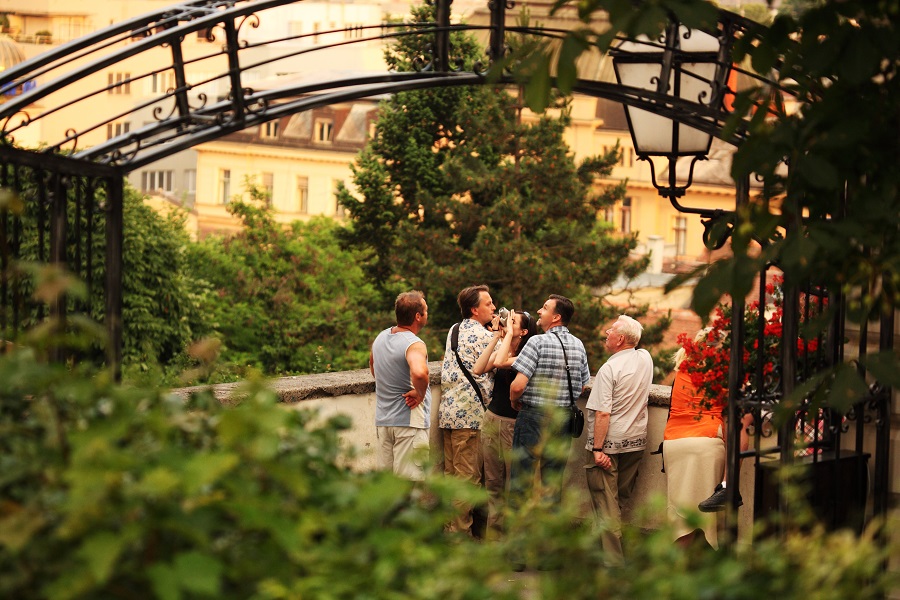The Most Important Phrases for Getting Around Zagreb
Believe it or not, but Zagreb as a city has existed since the 11th century and during that long period of time, people who lived here developed their own special kind of Croatian language. What's more, some of the phrases are so unique to this town that if you say it anywhere else in Croatia, people will immediately assume you’re from Zagreb. Since Zagreb and Vienna had a special bond throughout history, German language had quite an influence on the formation of these phrases and some are even the same. So if you know a bit of German, you shouldn’t have any trouble learning Purgers version of Zagrebian language.
Šprehati like a proper Purger
So let’s start with špreha or spika – both phrases mean a talk or to speak, so when you introduce yourself to a local in Zagreb and begin a conversation with him, you are šprehati (talking). If you talk to him outside, you’ll probably notice a lot of taubeks around you. Taubek is an expression Purgers use for pigeons, even though the standard Croatian word for pigeon is – golub. These kinds of phrases are used mostly by elderly people so if you’re feeling eager to learn Zagrebian language, my suggestion is to go to a park and watch them playing ajnc (a type of card game). Listen them talking to each other and I’m sure you’ll hear some of these words: plac (farmers' market), špigl (mirror), cajger (clock needle), obleka (clothes) etc.

Image credit: Zagreb Tourist Board, Marko Vrdoljak
Old Purgers are usually very proud of talking like real Zagrebians do, so don’t be shy and ask them whatever interests you about these kinds of phrases. They might start talking about their younger days and tell you a story how they were all fakins or mangups in their childhood (fakin or mangup are expressions used to describe a naughty child) and how they were furt barili komade u lepim klajdama which basically means they were flirting with pretty ladies in beautiful dresses.
Old gentleman’s tale
I remember my experience with an older gentleman at Zrinjevac park. I was sitting on a bench and reading a book when he approached me, tipped his hat and politely asked: “Najte kaj zameriti, ali prosim lepo, bi si mogel sesti pored vas?” Translated it means “Pardon me, may I sit next to you?” and obviously, I said yes because this charming gentleman looked and talked like a proper Purger which I adore. He told me I reminded him of jedna frajla iz moje mladosti (“one girl from his younger days”) who was his first love and we started talking. Back in the day, he had a crush on this frajla who was fakat komad (“Really hot!”) so he would go to plac each day and he bought her pušlek (a bouquet of flowers) which he would then bring her to her house. He wasn’t allowed in because her father didn’t approve of their relationship. Nonetheless, he would put on his best lajbek (waistcoat), sneak in her courtyard and then give her this pušlek through firgonge (curtains) on her bedroom window.

Image credit: Zagreb Tourist Board, Marko Vrdoljak
Sometimes she would kušnula ga (give him a kiss) and other times, she’d give him apfelštrudl (apple pie) to take home with him. I was sad to hear they never married, but this gentleman just laughed and told me this frajla from his story was his first love, but not his last. He was quite a fakin so he had many other ladies during his younger days whom he was šmekati (to woo someone). Eventually, he settled down and married someone else, which reminded him he has to go to plac and buy grincajg (vegetables for soup) because his wife is making ajngemahtec (traditional chicken and vegetable soup) for dinner. I bid him farewell with “Serbus!” which is an old salute in Zagreb and he smiled for the last time, once again nodding his head and tipping his hat and left in an unknown direction.
Purger's Language - Heartbeat of the city
As you can see, Zagrebians are more than lovely and warm people to talk to so don’t be afraid and ask them to teach you a few phrases. Along the way, you might hear some good stories and they’ll share memories with you which you can remember later and it’ll help you memorise these words even better.

Image credit: Zagreb Tourist Board, Marko Vrdoljak
Still, the most important phrase in Zagreb is KAJ and to prove yourself to be a true Purger, you need to remember: “Say KAJ or Die!” Not really, though. It’s a bit dramatic, but it’s an old saying because some locals forgot about Kajkavian dialect due to language changes that occurred throughout the years and others are trying to remind people that true Zagrebians say Kaj and not Što, even though the latter is a formal expression in Croatian. But Zagreb has always been special and unique in everything, so why not in language as well? Zagreb, tak te imam rad!
Header Image credit: Zagreb Tourist Board, Marko Vrdoljak
Author: Paula Bracko
